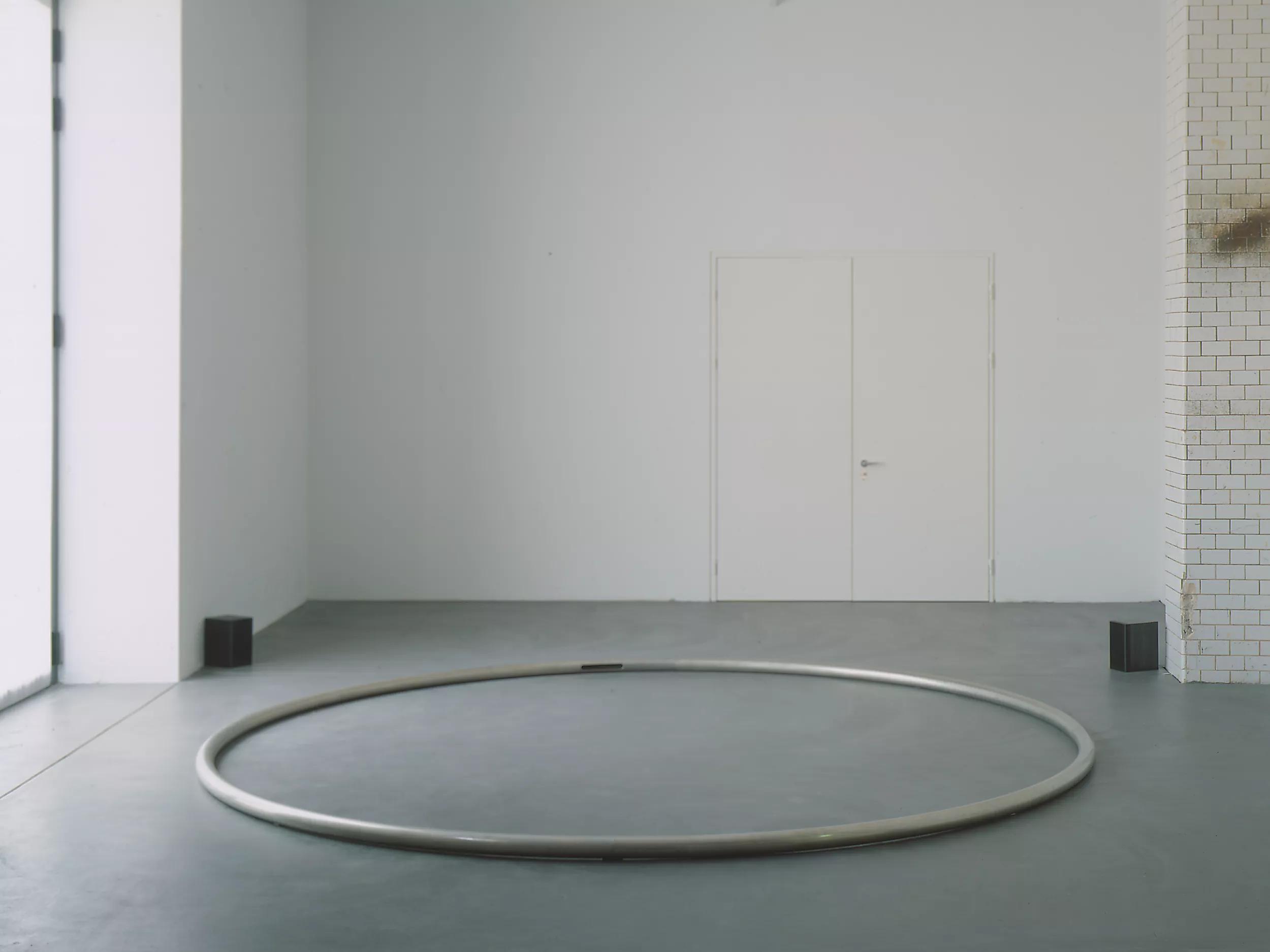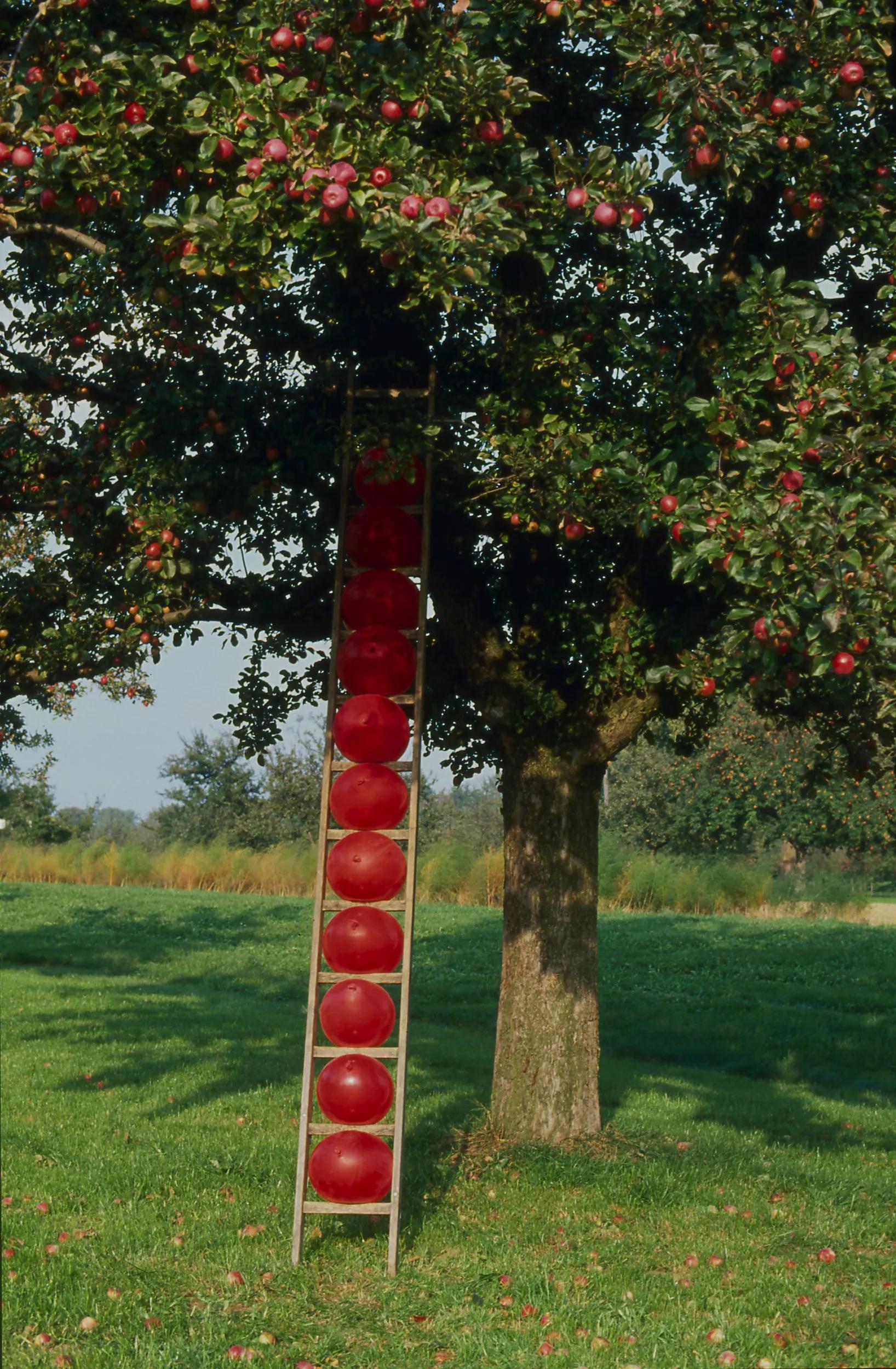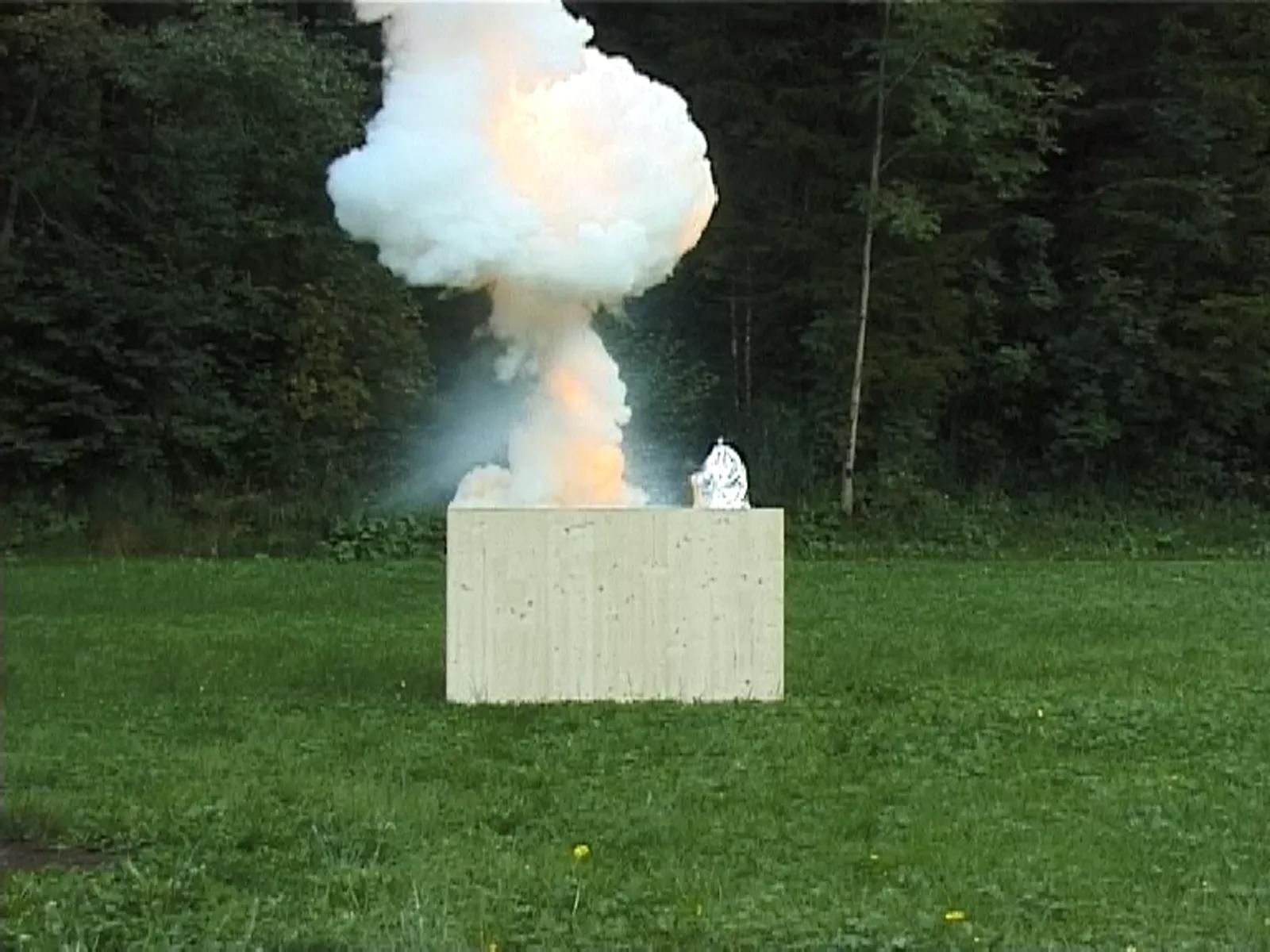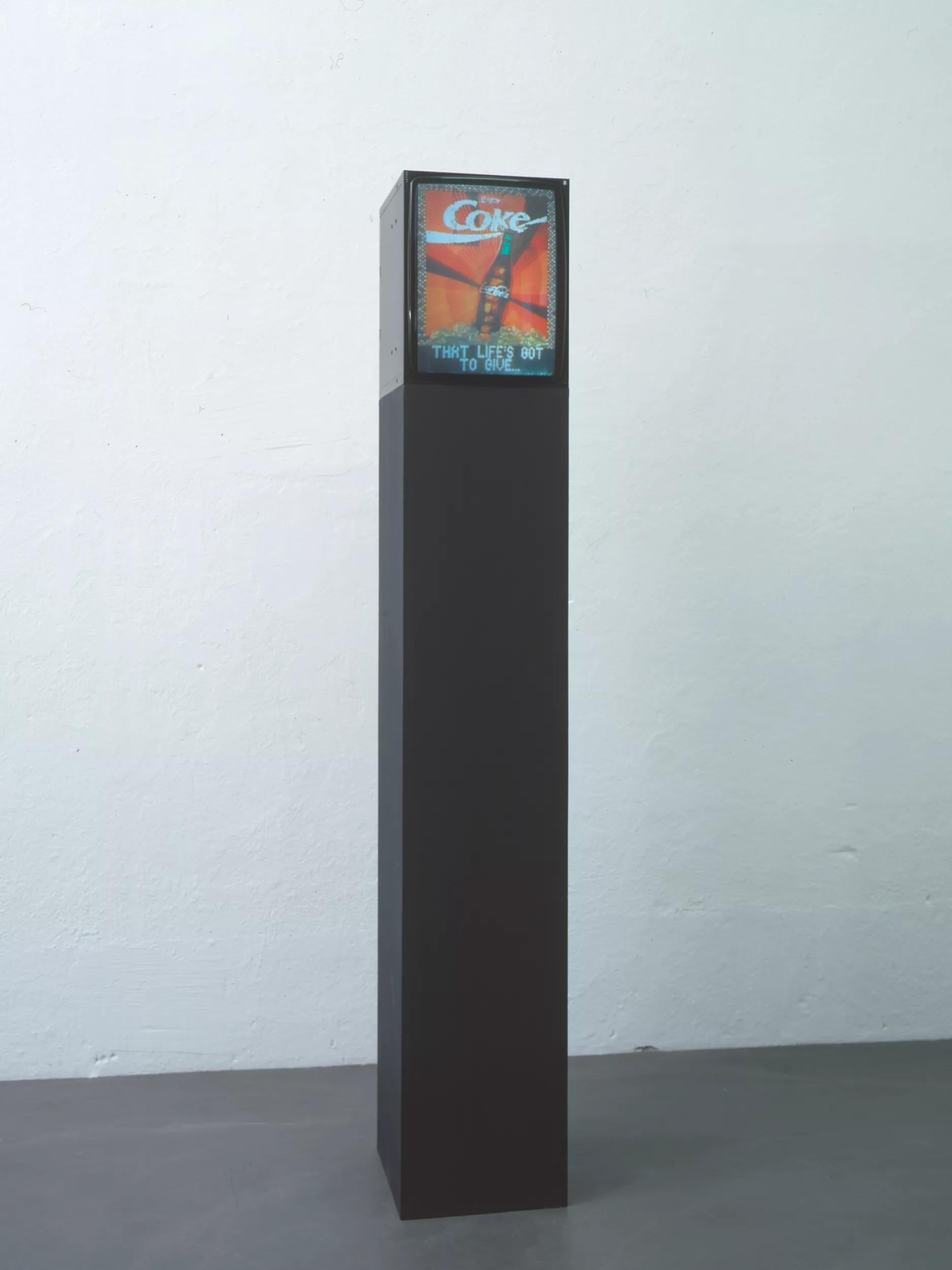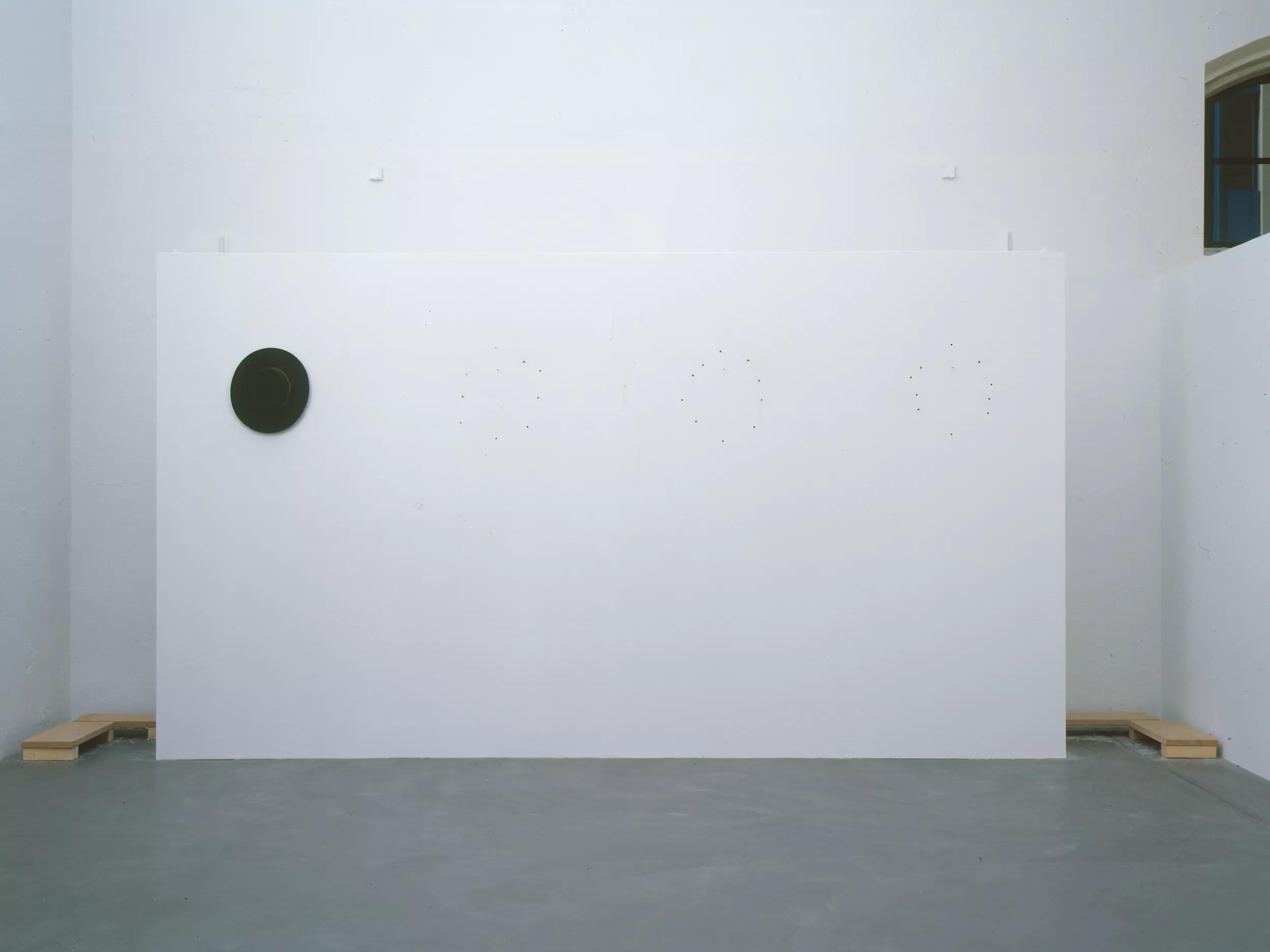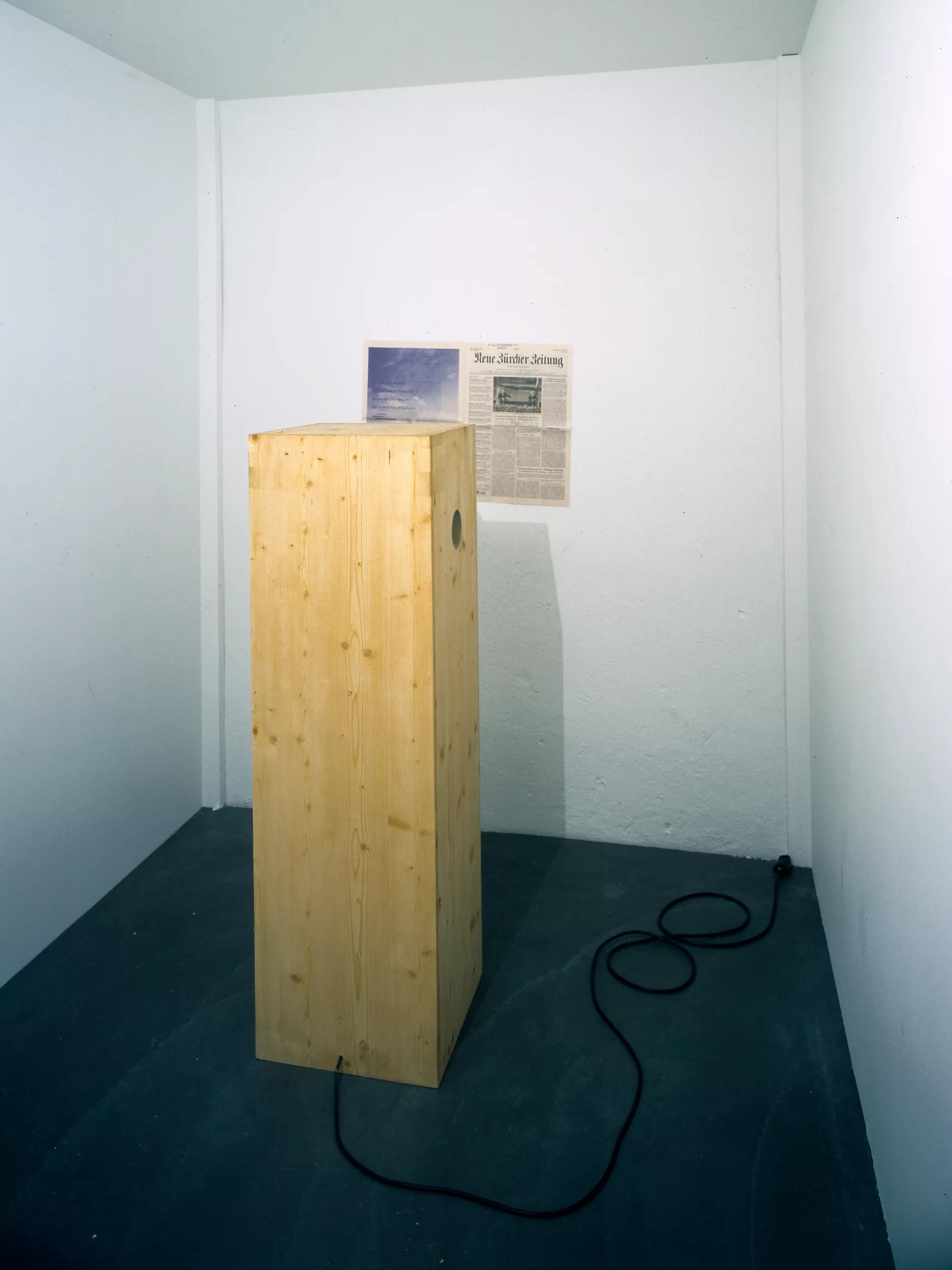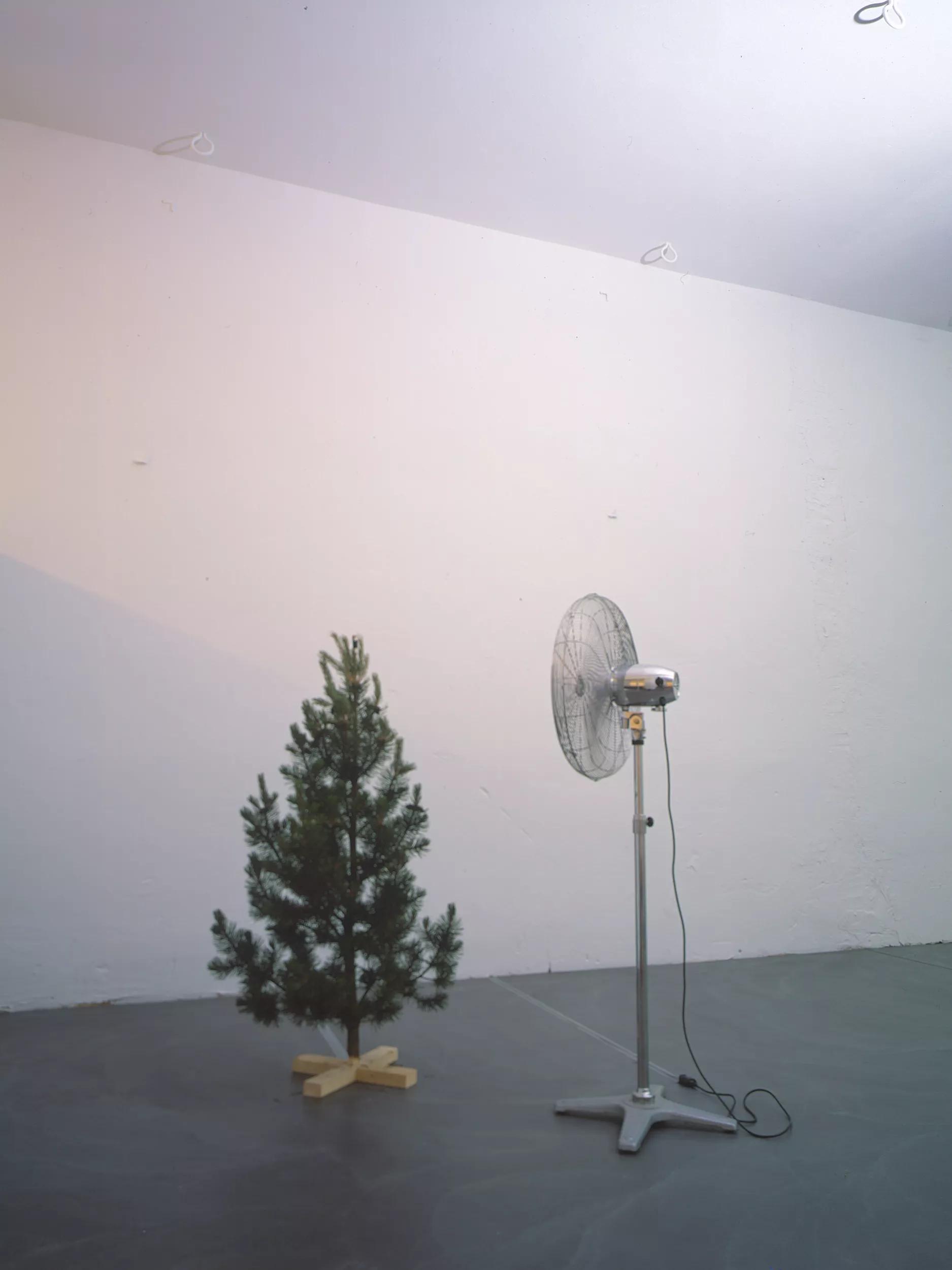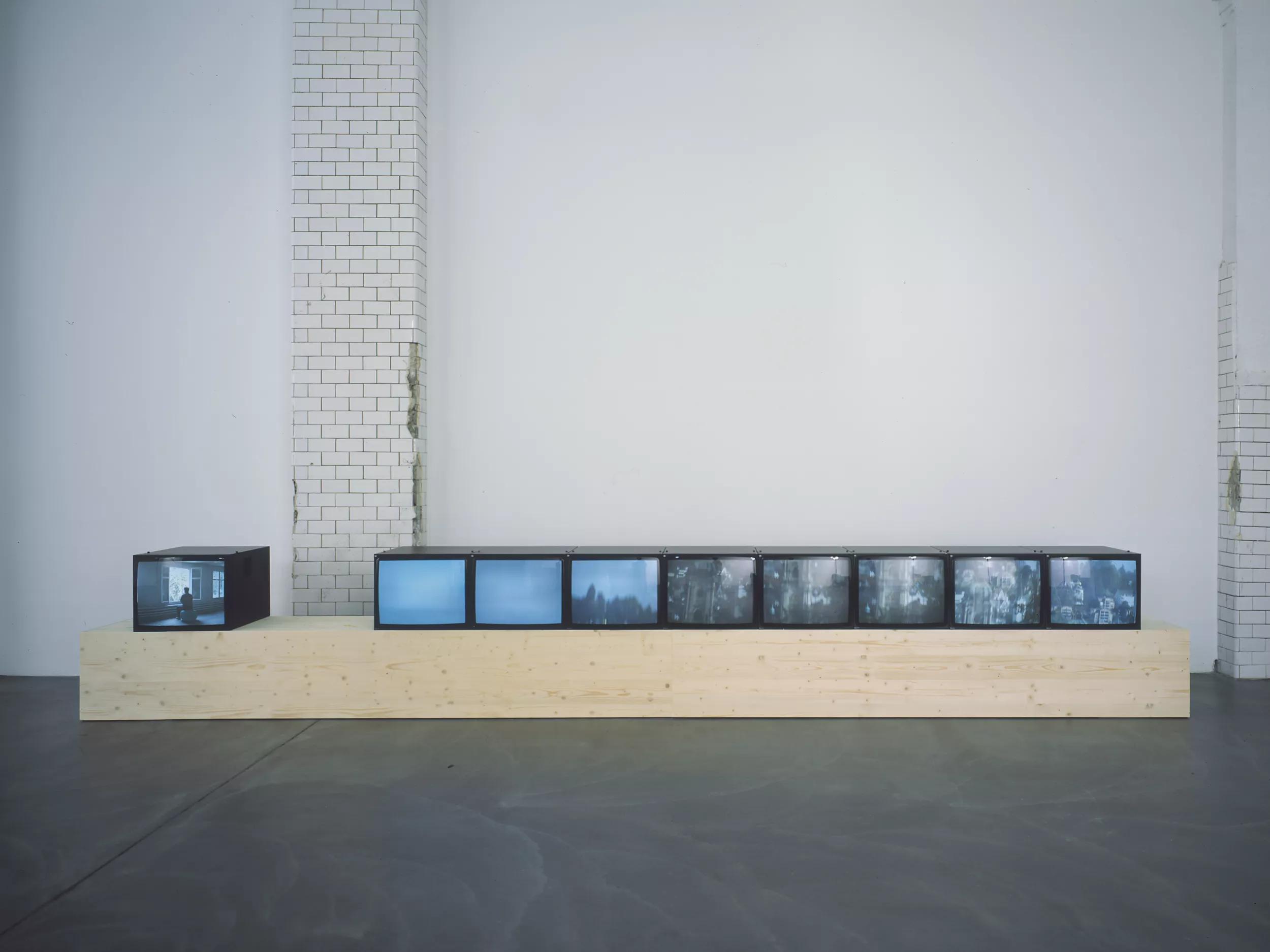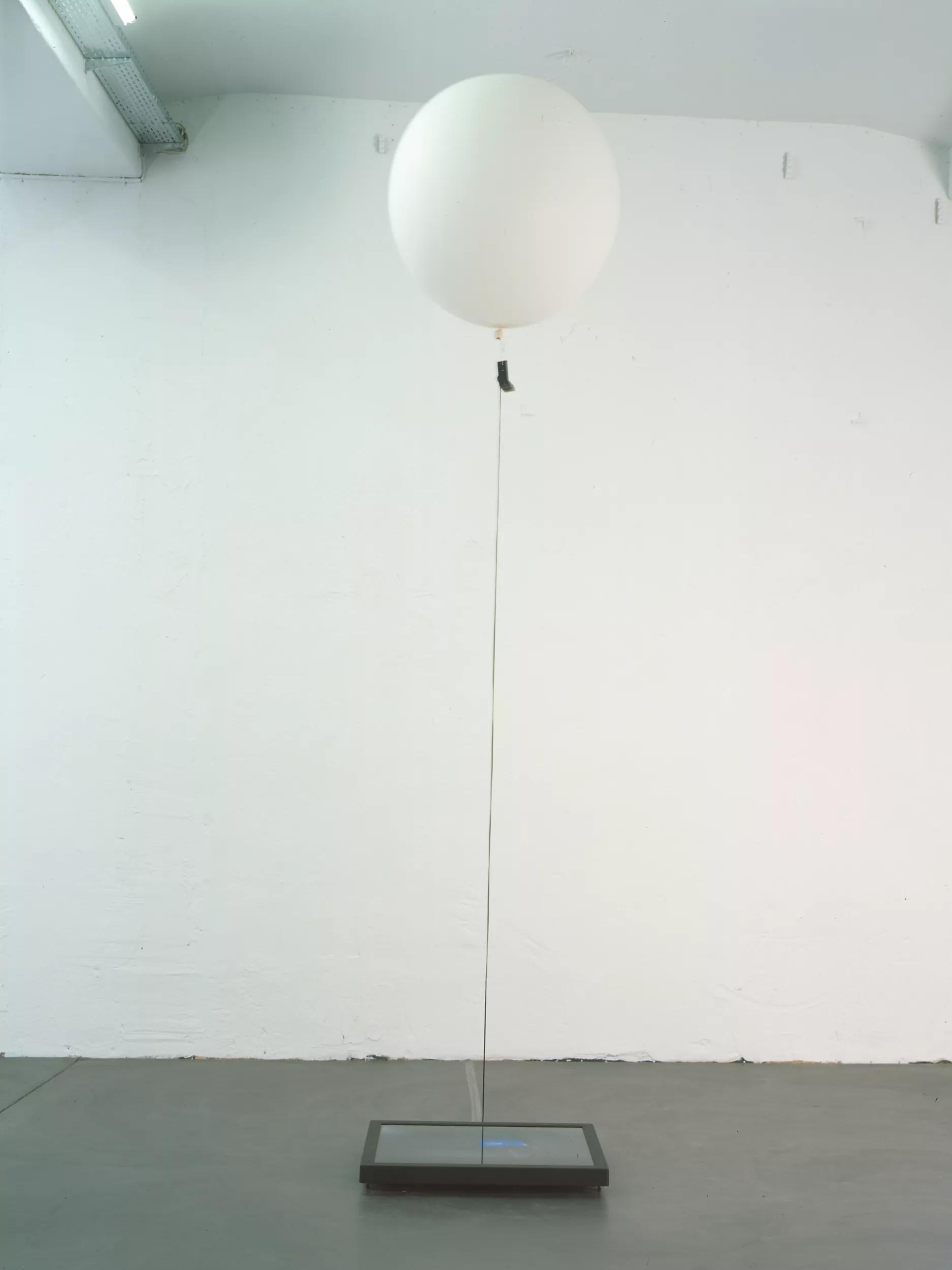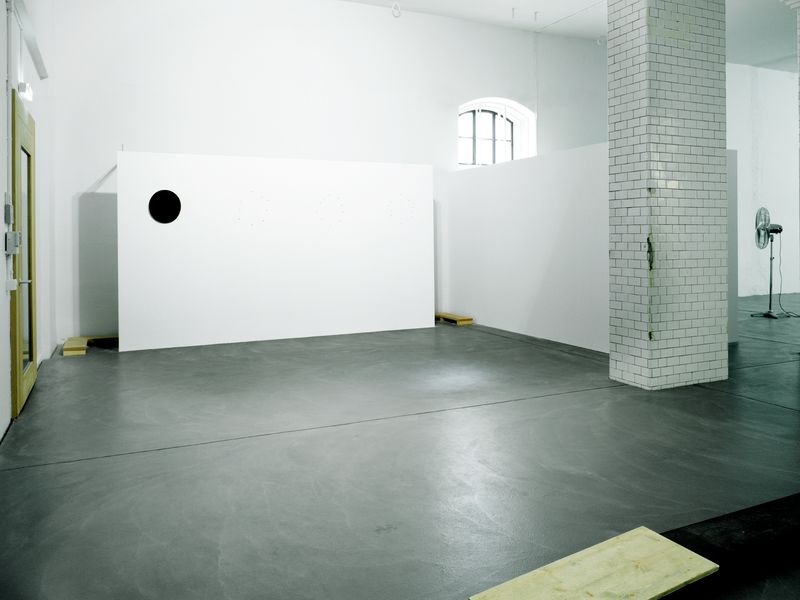
Roman Signer
Neue Arbeiten
11 June - 28 July 2001
Zürich
Installation views
About the Artist
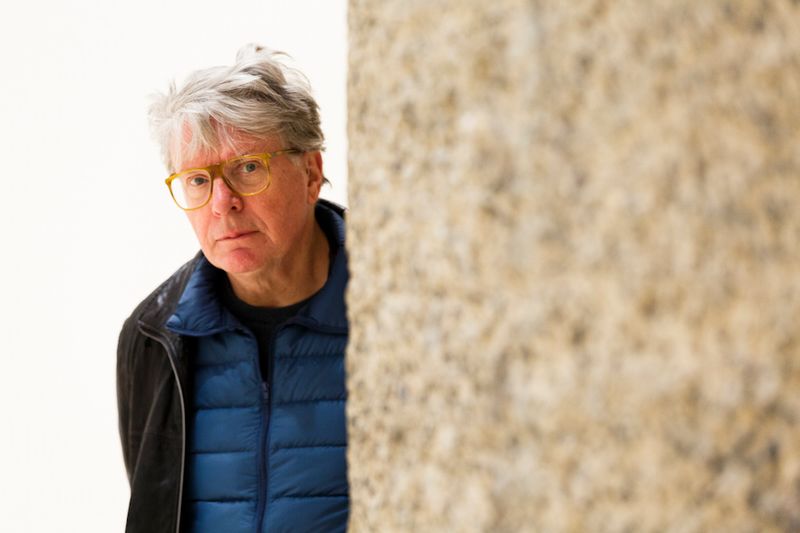
Roman Signer
Swiss artist Roman Signer has been redefining sculpture for more than 40 years and is now regarded as one of the finest representatives of Process and Conceptual art. He produces elementary dynamic sculptures and installations, also known as time sculptures for their preoccupation with the transformation of materials and objects through time. In his actions, acceleration and change are part of the creative process and he uses photography and moving image to document his work.Characterized by processes and potentialities, his work takes into account the concepts of Minimalism and Conceptualism, and with this Signer occupies a unique position in the recent history of sculpture. Signer exploits the possible uses and limitations of everyday objects, such as umbrellas, bottles, tables, chairs and candles, through a process guided by both curiosity and discipline. Like the director of a thriller, he makes use of tension and surprise—with the distinction that in his case everything takes place in the here and now. The works are the direct result of processes initiated by the artist.
Signer’s work explores the relationships between sudden energy releases and calm, between order and chaos, and the existence of form in the apparently formless. Physical forces like gravitation and motor energies are both a challenge to the artist and the instruments he relies on to realize his sculptural ideas. In his work, classical sculptural materials have been usurped by sand, water and ordinary objects. Meticulous planning and incalculable chance interact, generating ‘poetic’ visual installations with their own highly developed individual aesthetic. Signer’s artistic explorations of the world around us and its phenomena changes our perceptions and even seems to alter reality. Often the mere indication of a sudden or possible release of energy is enough to transmogrify a simple configuration of objects—a movable wooden arm and a rocket—into a wittily succinct visual commentary on the relationship between cause and effect.
His work has been presented in numerous museums and galleries worldwide and has been selected for prestigious international exhibitions such as the Venice Biennale, where he represented Switzerland in 1999, Skulptur Projekte Münster (1997) as well as Documenta 8 in Kassel where during ‘Action in front of the Orangerie’ he catapulted 350.000 sheets of paper into the air simultaneously with an explosive charge.
Current Exhibitions
1 / 10
